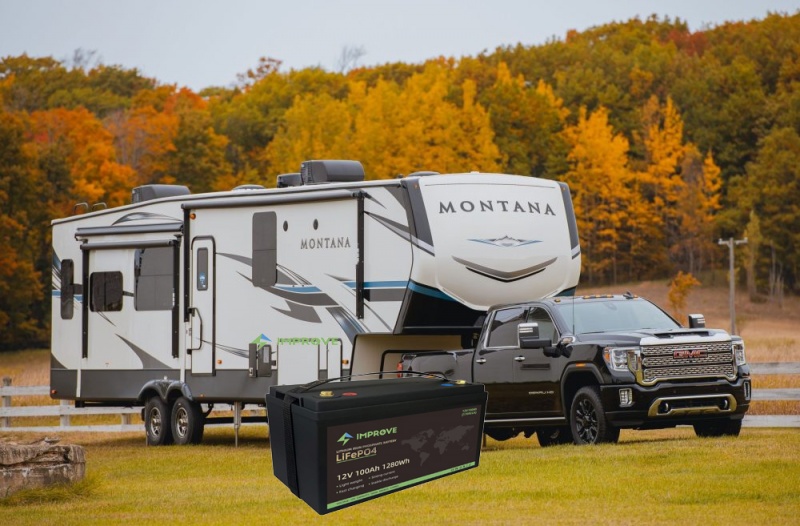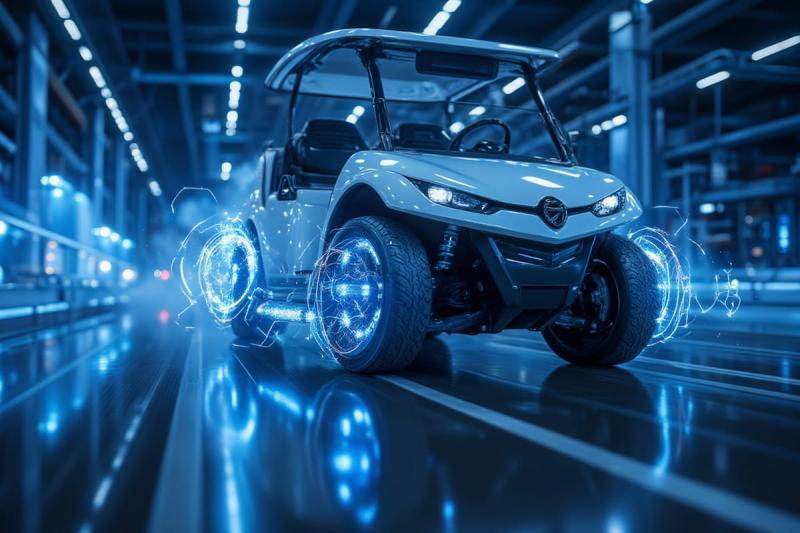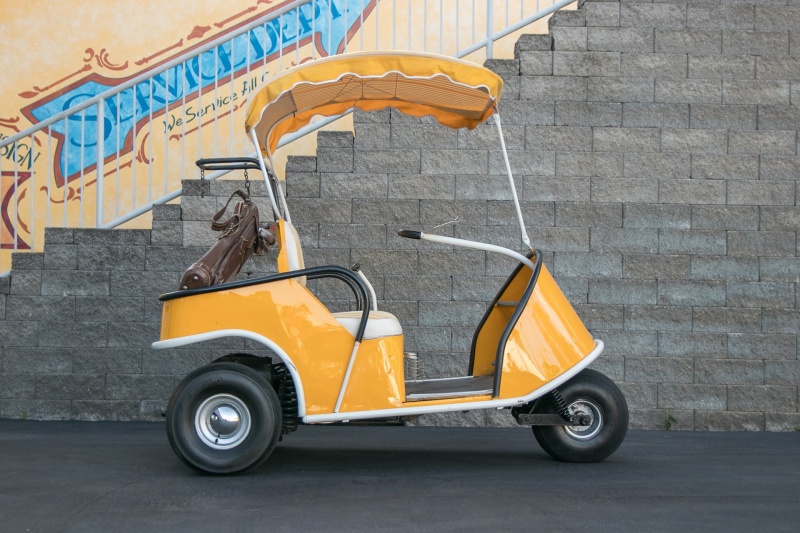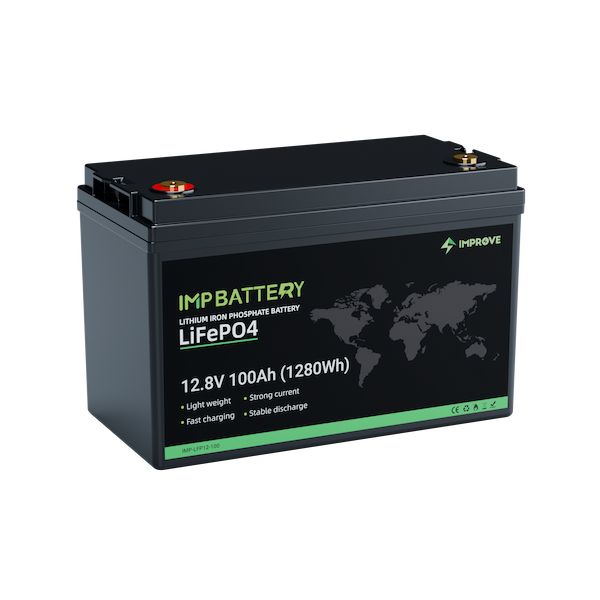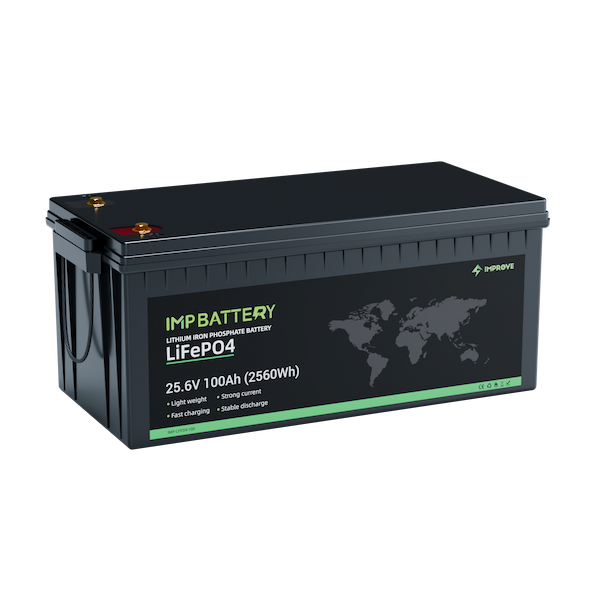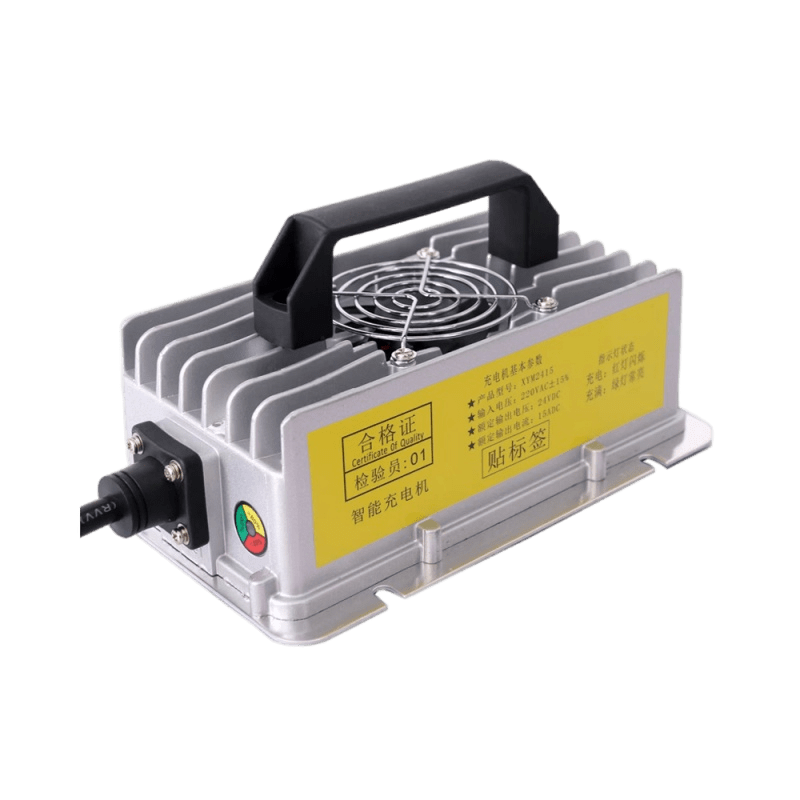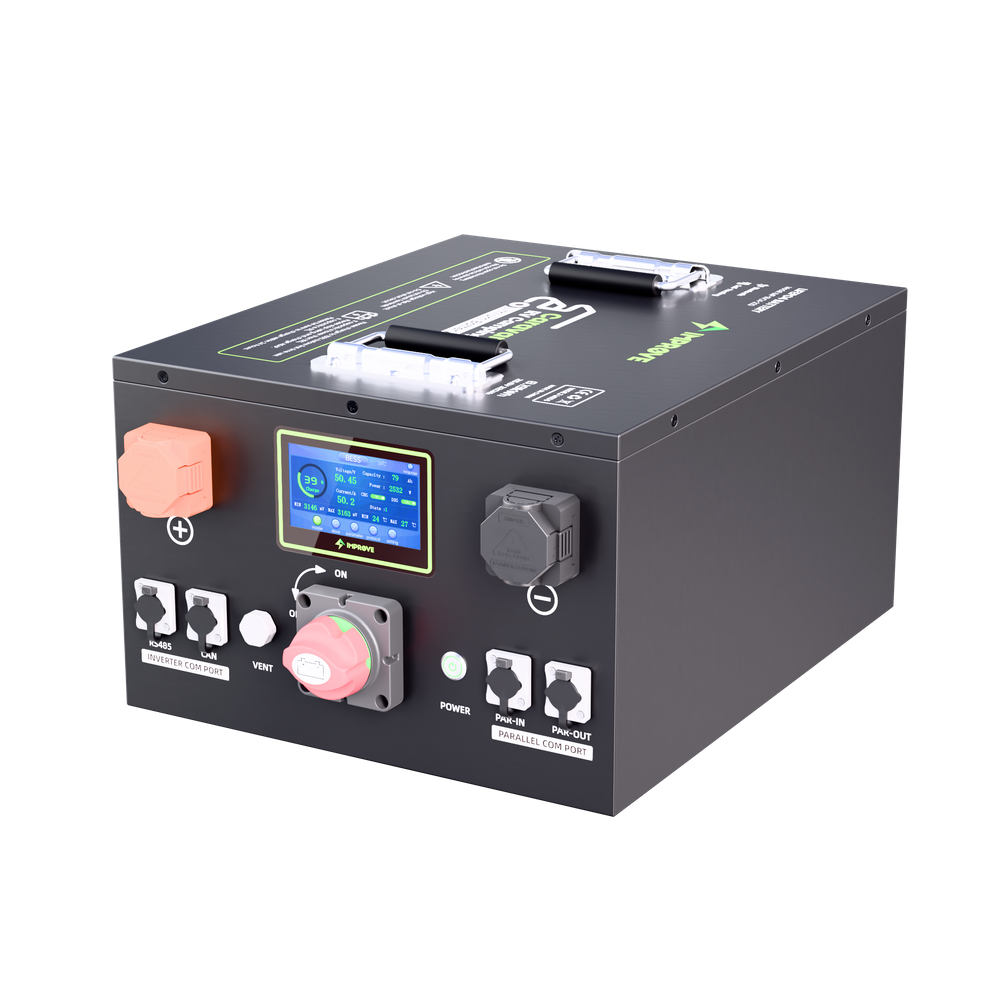It is known that the RV is used for long outdoor trips with bumps and has a relatively long idle period. The battery applied to the RV is used to store the electricity generated from various sources and power the home appliances. Therefore, compared with ordinary electric vehicles, RVs need a large capacity and long service life battery.
Traditionally, most RVs use lead-acid batteries. Lead-acid batteries are cheap, but large in size and weight, and have a short service life. They may be a good choice for people who use less electricity and RVs at a low rate. However, if you use about 8 kWh per day, you will need at least 8 100Ah lead-acid batteries. Generally speaking, a 100Ah lead-acid battery weighs 30KG, which means 8 pieces will reach 240KG and it is about the weight of 3 adult men. In addition, lead-acid batteries have a short service life, and their storage rate becomes lower and lower as time goes by, requiring users to replace batteries frequently.
Lead-acid Battery
Because the volume density of lithium batteries is usually about 1.5 times that of lead-acid batteries, lithium batteries are about 30% smaller than lead-acid batteries at the same capacity.
Lithium batterieslast about three to six times longer than lead-acid batteries. For example, lithium iron phosphate batteries have more than 2,000 cycles, while lead-acid batteries typically have 300-350 cycles.
In terms of energy density, lithium batteries typically have an energy density of 200 to 260wh/kg, compared with 50 to 70wh/kg for lead-acid batteries, which means lithium-ion batteries have three to five times more capacity than lead-acid batteries for the same weight.
According to the survey, most users attach great importance to RV charging.
Based on this, lithium batteries will be more able to meet the needs of a lightweight, long service life, and large capacity.
However, there are two common types of lithium batteries called lithium iron phosphate battery(LiFePO4) and ternary polymer lithium battery(Li(NiCoMn)O2).
Advantage of Ternary Polymer Lithium Battery: Because of high energy density, ternary polymer lithium battery becomes the first choice in the field of small passenger vehicles. The higher the energy density, the longer the range. The range is the biggest demand for electric vehicles, and ternary lithium is right up there.
But things have changed recently. Tesla officially announced in its third-quarter that it would switch to LiFePO4 batteries worldwide for the standard range Model 3 and Model Y new-energy vehicles. Musk also said he prefers LiFePO4 batteries.
Moreover, the blade battery developed by BYD brings the energy density of LiFePO4 close to that of ternary, while still having the high safety of LiFePO4. With advantages such as low cost and high safety, LiFePO4 batteries are increasingly widely used in the EV market. The proportion of installation and production of LiFePO4 batteries continues to rise. It is easy to infer that LiFePO4 may be the mainstream in the field of energy storage and electric vehicles in the future.
I.Compared with ternary polymer lithium batteries, the LiFePO4 battery’s energy density is lower, but its service life is much longer and also safer.
1.LiFePO4 has better cycling properties. The number of charge-discharge cycles of LiFePO4 can reach 3500 ~4000 times, while the ternary is 1500 ~2000 times.
2. LiFePO4 has stable chemical properties and high-temperature resistance. Only when the temperature reaches 700-800℃ will it begin to decompose. What’s more, in the case of impact, acupuncture, or short circuit, LiFePO4 will not release oxygen molecules, so it can avoid violent combustion. But ternary lithium has poor thermal stability. When the temperature reaches 250-300℃, ternary lithium will decompose and catch fire easily after meeting the combustible electrolyte and carbon material in the battery. At the same time, the heat generated will further aggravate the decomposition of the positive electrode, causing deflagration in a very short time.
Different from electric vehicles, RVs need to be charged and discharged frequently, so they must be powered safely.
Above all, LiFePO4 is more suitable for RVs with long service life and high safety.
The RV (Image: Shenzhen Improve Battery Co.,LTD)
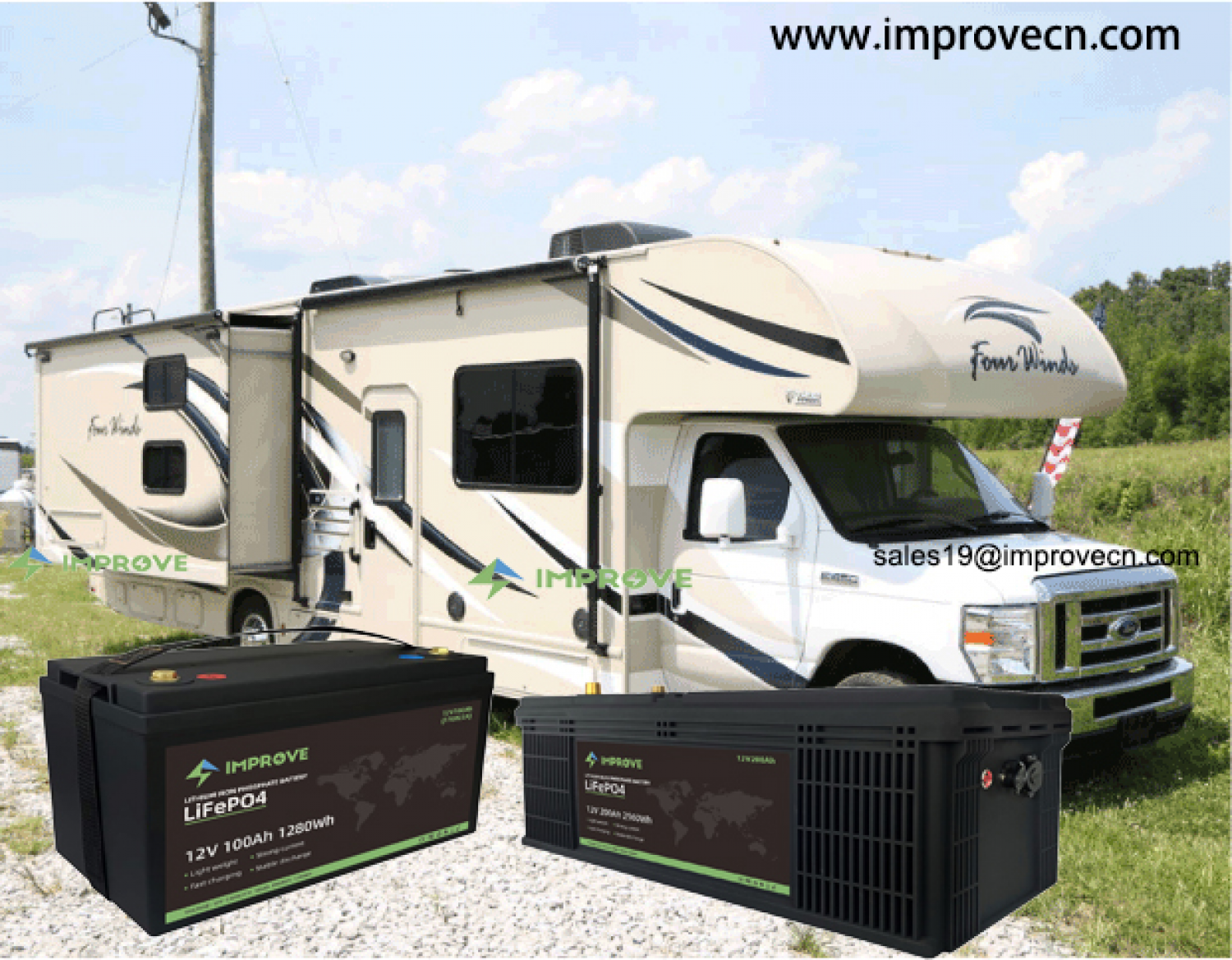
II. IMPROVE Launches LiFePO4 Battery – Long Service Life & High Safety
1.More than 6000 times Cycles
2. 5-year Warranty
3. BMS Battery Management System: over-discharge, overcharge, over a current, short circuit, reverse connection, temperature resistance, and other protections
3. Safety Test Guarantee: battery through high temperature, low temperature, short circuit, overcharge, drop, extrusion, impact, puncture, and other safety tests
4. Safety Certification: the whole machine passes UN38.3, MSDS certification, battery passes IEC62619, RoHS, UL1642 certification, transportation requirements meet GB21966-2008 and vibration requirements meet QC-T_413-2002;
Ensure the safety of electricity consumption in all aspects.
III. The IMPROVE LiFePO4 Battery has More Advantages
The RV is not only required to be safe and have a long service life, but also supply stable power, to ensure the comfort of the journey.
The IMPROVE LiFePO4 battery is provided with a high rate and stable charge-discharge property, except for high safety and long service life. If the depth of discharge is 80%, the IMPROVE LiFePO4 battery can be circulated more than 4000 times under the condition of 0.2C charge-discharge rate and 25℃ room temperature. The capacity of the battery can still reach 80% of the initial capacity after 4000 cycles.
In addition, the IMPROVE LiFePO4 battery is equipped with——
1.Automatic Charge and Discharge Management: The monitoring unit automatically measures the charge and discharge current of the battery and conducts intelligent charge management for the battery.
2.Good Properties of Discharge Rate:1C continuous discharge to meet high current discharge applications.
3. The IMPROVE LiFePO4 battery has additional designs based on the actual RV application. After all, when we travel around, the simpler the better!
4.RS485 Communication:Manual switch port which is easy to operate, with automatic startup and storage and other function
5.Parallel Connection of Lithium Batteries:Automatic balance, no uneven internal state.
6.Complete Intelligence: A separate centralized monitoring module for remote communication to achieve remote management and low maintenance costs. Makesure you have a smooth journey.
Battery Management System
IMPROVE focuses on mobile vehicle technology research and the development of independent power systems and product services. Efficient solar panels, intelligent controller, safe LiFePO4, stable reverse charge all-in-one machine, intelligent APP, and other RV power systems are provided. The seven modules of power generation - transmission - charging - power storage - inverter - distribution - electricity consumption is compatible. Intelligent adjustment of charge and discharge logic to provide overcharge and over-discharge protection, ensuring the safety, efficiency, and stability of the power system. Therefore, IMPROVE is well received by domestic and foreign RV manufacturers and consumers.
If you are interested, please feel free to contact us!


